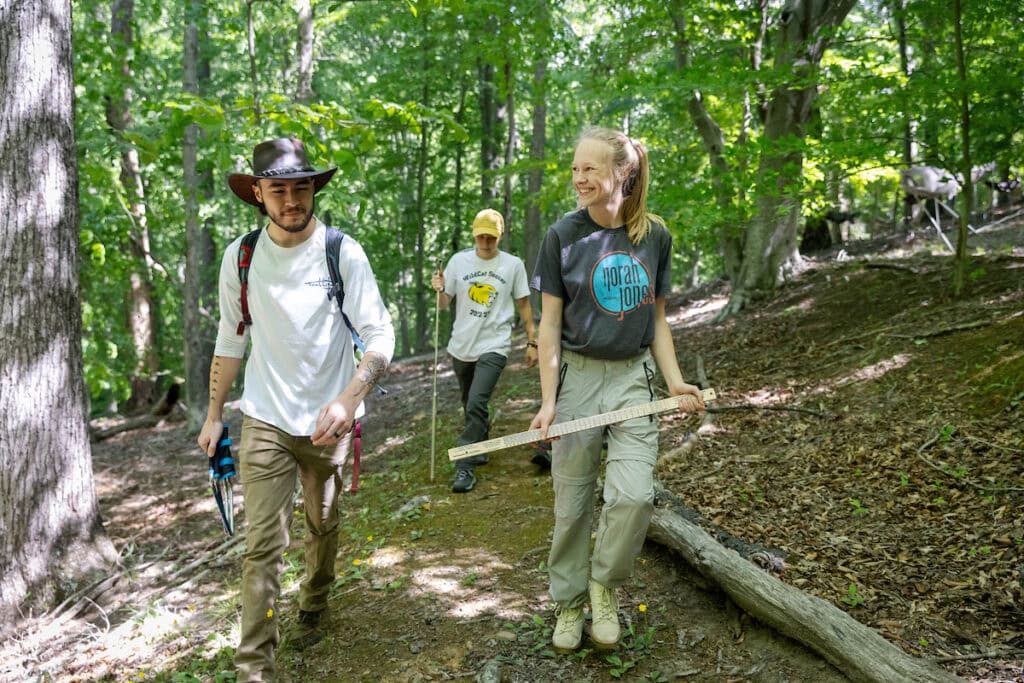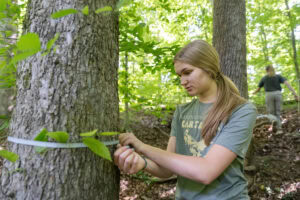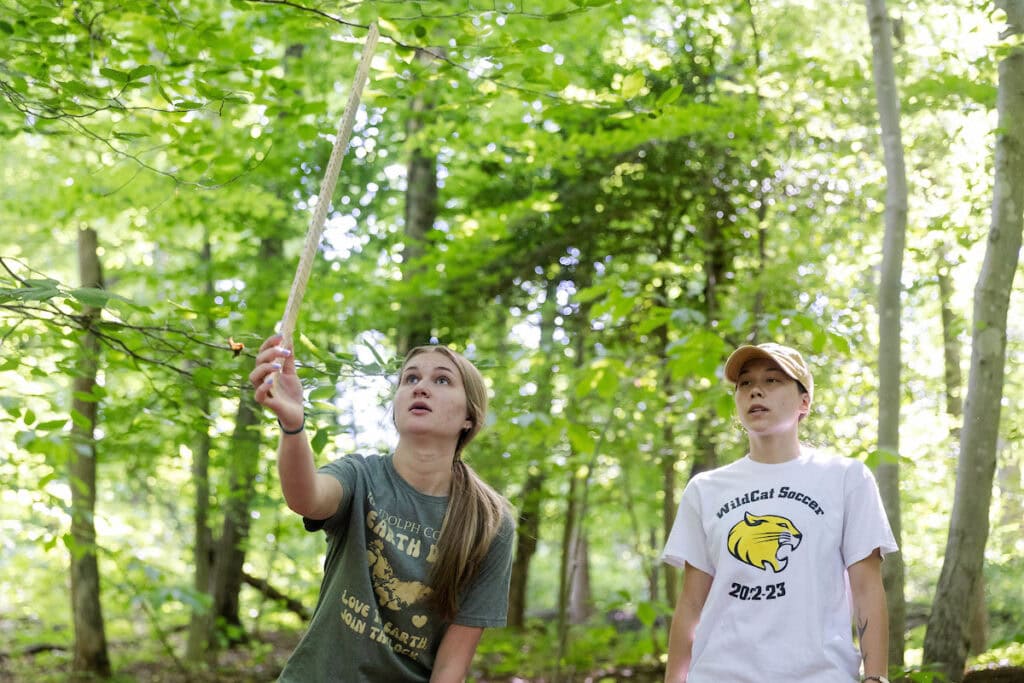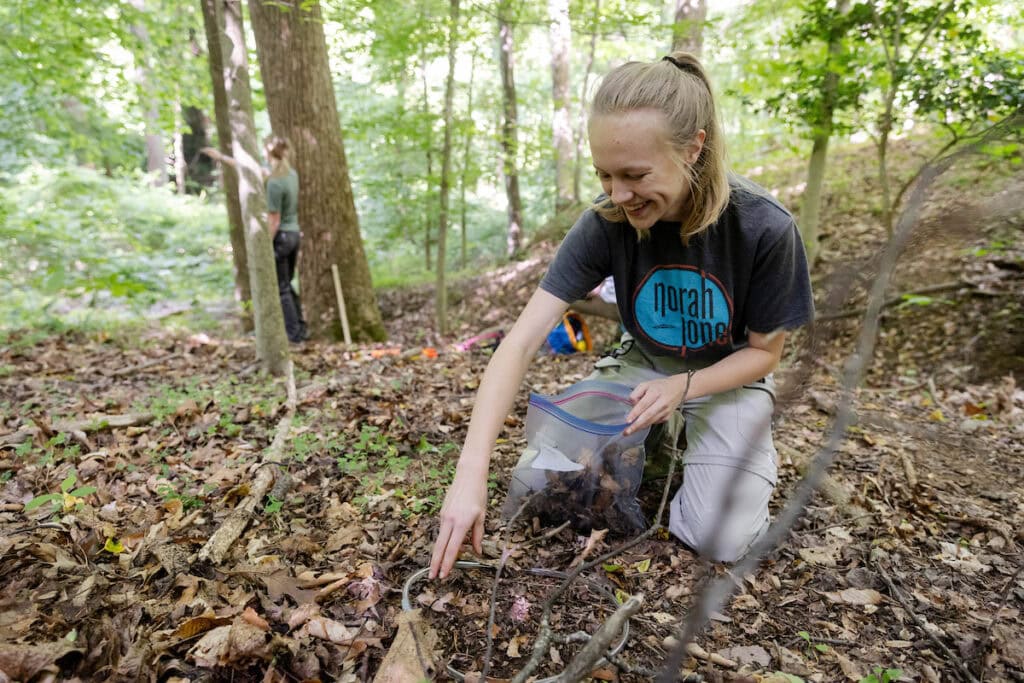Randolph students conduct forest inventories for summer internship

Gabe Quintero ’23, Alana Ellis ’26, and Wednesday Hertzberg ’26 walk on back campus in May.

Trinity Shirlen ’26 takes measurements in the forest.
A trio of Randolph students got a taste of the wild this summer.
Alana Ellis ’26, Wednesday Hertzberg ’26, and Trinity Shirlen ’26 worked as summer field tech interns with the 500-Year Forest Foundation, led by Gabe Quintero ’23, who has worked as forest coordinator for the foundation since graduating from Randolph.
The national nonprofit works to preserve old growth forests, which provide vital ecosystem services, promote biodiversity, and store carbon, which helps reduce the effects of climate change.
The collaboration between Randolph and the 500-Year Forest Foundation began in 2019, not long after Karin Warren, the College’s Herzog Family Professor of Environmental Studies and Science, joined its board.
The organization didn’t have its own staff to conduct field research, so she began recruiting students in what became a yearly Summer Research project and semester-long internships.
Over the past two summers, Warren has coordinated the intern program, with funding provided by the foundation.

Trinity Shirlen ’26 and Alana Ellis ’26 take measurements for their internship.
Hertzberg and Shirlen worked as interns in 2023 and, this year, were joined by Ellis.
All environmental science majors, they spent their days both in the field and the lab, collecting and analyzing samples, and writing reports.
Their work included conducting forest inventories, soil carbon analysis, trail maintenance, and invasive species assessment, among other duties.
“I’m very interested in field work, and I love the work we did for the 500-Year Forest Foundation,” Hertzberg said. “I’m hoping it will allow me to make connections and find a job in the field. I’m interested in exploring water quality work, conservation work, or something through the foundation.”

Wednesday Hertzberg ’26 collects leaf litter samples.
Quintero is an example of what can come from the collaboration between the College and the foundation.
As a student, he spent two summers doing research with Warren for the 500-Year Forest Foundation as part of Randolph’s Summer Research Program.
For his honors research, he developed a carbon storage assessment methodology and guide that is now being implemented in foundation forests. This data can give researchers a better idea of the role these areas play in climate mitigation and will eventually help forest owners take advantage of carbon credits.
His mentorship was invaluable for the interns.
“It’s been an amazing experience,” Ellis said. “Gabe helped me learn and understand everything I needed to know. I wanted to major in environmental science because it has always interested me, and I care about the world we live in.”
Tags: 2024 summer internships, environmental science, environmental studies, faculty student research, Karin Warren, Science Matters, student research, summer internships
